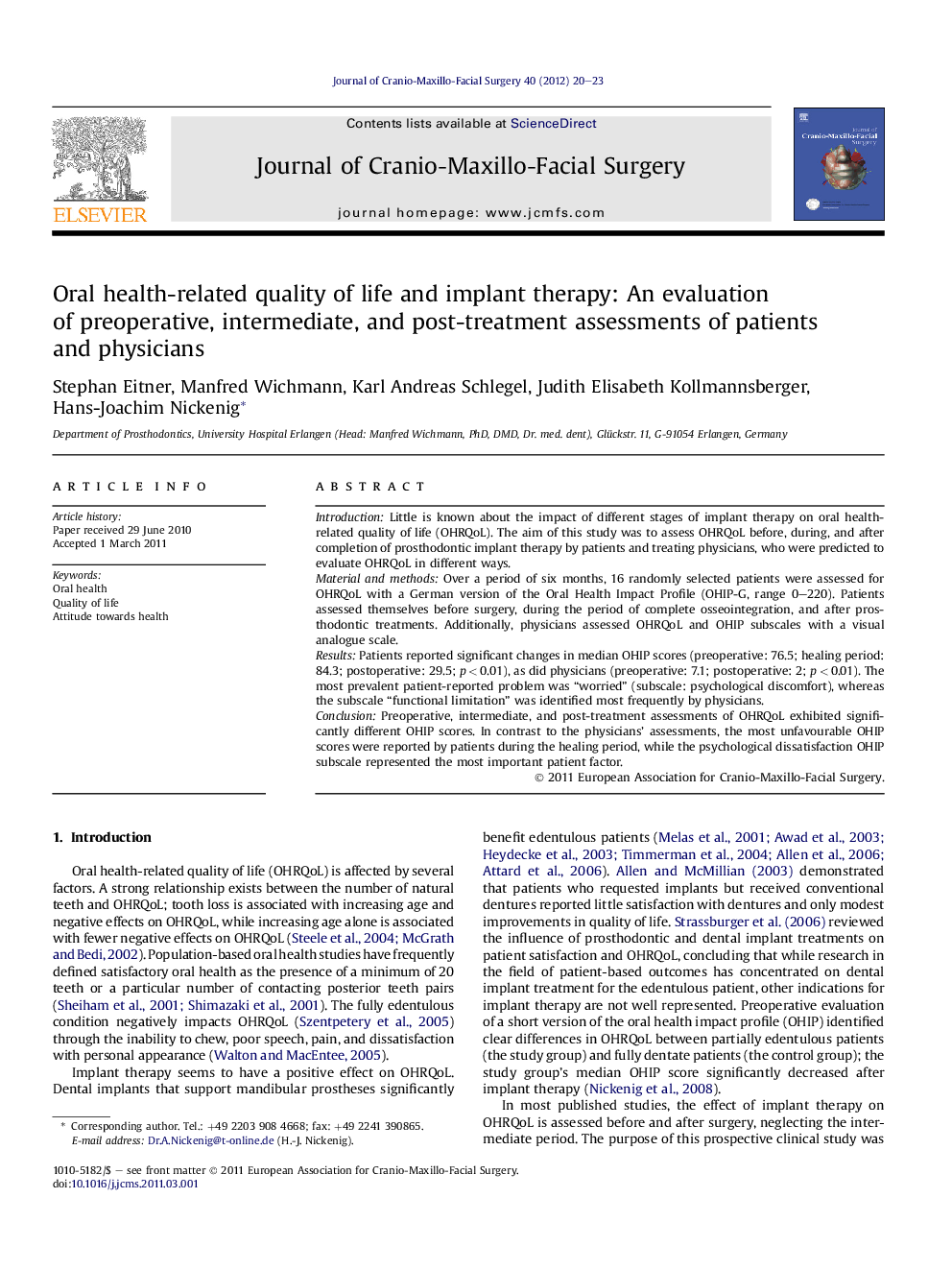| Article ID | Journal | Published Year | Pages | File Type |
|---|---|---|---|---|
| 3143648 | Journal of Cranio-Maxillofacial Surgery | 2012 | 4 Pages |
IntroductionLittle is known about the impact of different stages of implant therapy on oral health-related quality of life (OHRQoL). The aim of this study was to assess OHRQoL before, during, and after completion of prosthodontic implant therapy by patients and treating physicians, who were predicted to evaluate OHRQoL in different ways.Material and methodsOver a period of six months, 16 randomly selected patients were assessed for OHRQoL with a German version of the Oral Health Impact Profile (OHIP-G, range 0–220). Patients assessed themselves before surgery, during the period of complete osseointegration, and after prosthodontic treatments. Additionally, physicians assessed OHRQoL and OHIP subscales with a visual analogue scale.ResultsPatients reported significant changes in median OHIP scores (preoperative: 76.5; healing period: 84.3; postoperative: 29.5; p < 0.01), as did physicians (preoperative: 7.1; postoperative: 2; p < 0.01). The most prevalent patient-reported problem was “worried” (subscale: psychological discomfort), whereas the subscale “functional limitation” was identified most frequently by physicians.ConclusionPreoperative, intermediate, and post-treatment assessments of OHRQoL exhibited significantly different OHIP scores. In contrast to the physicians’ assessments, the most unfavourable OHIP scores were reported by patients during the healing period, while the psychological dissatisfaction OHIP subscale represented the most important patient factor.
